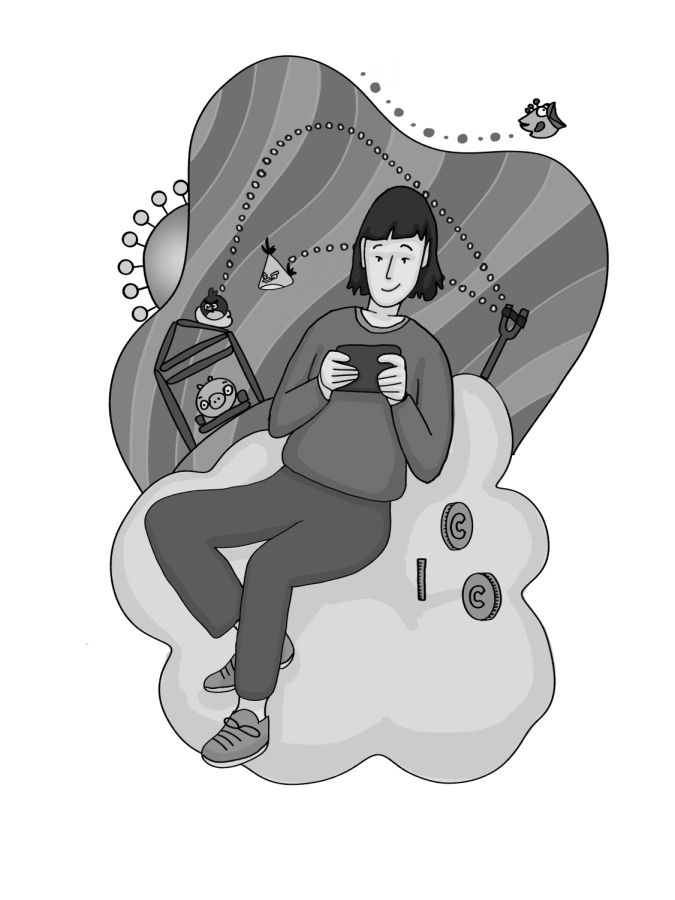OPINION: Video games offer simplicity in trying times
With the rise of social media, mobile gaming can serve as a healthy outlet to spend one’s time online.
Imagine: It is 2010, and the original Angry Birds has just been released for mobile phones. Instagram does not even exist yet. The bright world of battles between birds and pigs has drawn the world to the playful planet of mobile games.
Unfortunately, the public opinion of games has not stayed so positive over the last decade. However, contrary to what concerned parental figures may preach today, playing video games is not always a poor way to spend time. Rather, mobile games are a healthier and happier alternative to other online activities, and do not deserve the ill repute they have garnered.
In fact, video games can have noticeable positive benefits for a player. The New York Times references a Spanish study that found playing video games for an hour a week was associated with higher test scores and improved motor function in children. Thus, hand-eye coordination does actually improve with gaming. Video games can also function as an educational tool. Take puzzle games like Tetris that can enhance problem-solving skills, according to Kevin Hile in his book “Video Games.”
For overwhelmed high schoolers, mobile games offer simplicity in this fast-paced world. Games have been perfected through entertainingly cheery soundtracks and beautiful visuals. And with only a screen to work with in terms of controls, most mobile games are simple and offer a mental escape for when one finds themselves bored or overwhelmed. According to the American Psychological Association, simple games can improve a player’s mood, allow them to relax or even help avoid anxiety. A particularly delightful example of such an easy-to-play game would be “Tiny Wings,” a relatively old mobile game released in 2011 that combines simple gameplay with brightly colored scenery and an uplifting, jazzy soundtrack that has stood the test of time.
Of course, not all games are so cheesily cheerful – shooter games are very popular, and have arguably the worst reputation between types of video games because of their sometimes violent nature. However, the long-debated idea that violent video games promote real-life violence is not backed up by consistent scientific research. According to a scientific paper copyrighted by the American Psychological Association, “Research regarding the impact of violent video games on aggression is inconsistent and hampered by poor methodologies and the intrusion of ideology and scientific dogma.” Despite this, the link between virtual and physical violence continues to be falsely propagated. Take, for example, when former president Donald Trump addressed a particularly deadly weekend for shootings in 2019 and mentioned that “grisly” video games glorified violence, the New York Times reported. As a result of this kind of fear-mongering, games have gained a bad reputation that they do not deserve.
Admittedly, video games can have negative effects, particularly when played in excess. The World Health Organization recently added “Gaming Disorder,” a condition classified similarly to a gambling addiction, to its list of mental health disorders. However, the WHO took care to repeat that this disorder is a result of excessive gaming, and the average gamer can likely avoid an addiction to gaming.
Ideally, one should use their downtime to go outside and enjoy the sunshine, socialize face to face, or perhaps read a book. But when the day is gray or the library is closed, a reasonable bit of time spent blissfully gaming is a fantastic way to waste an afternoon.


